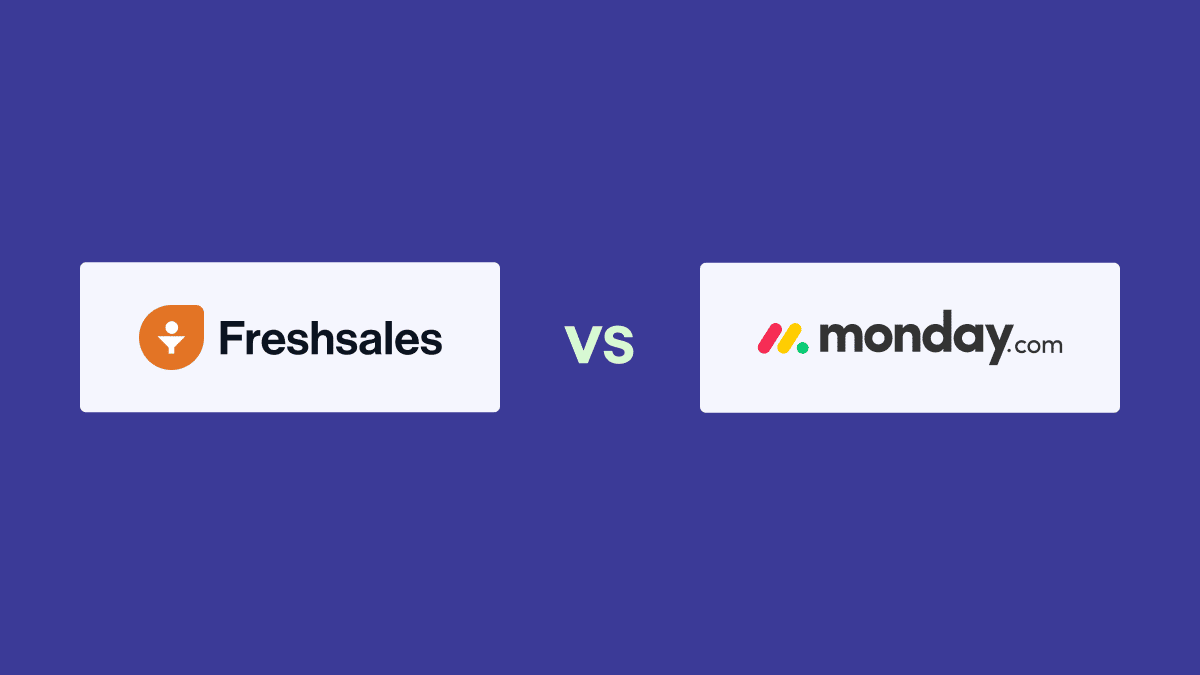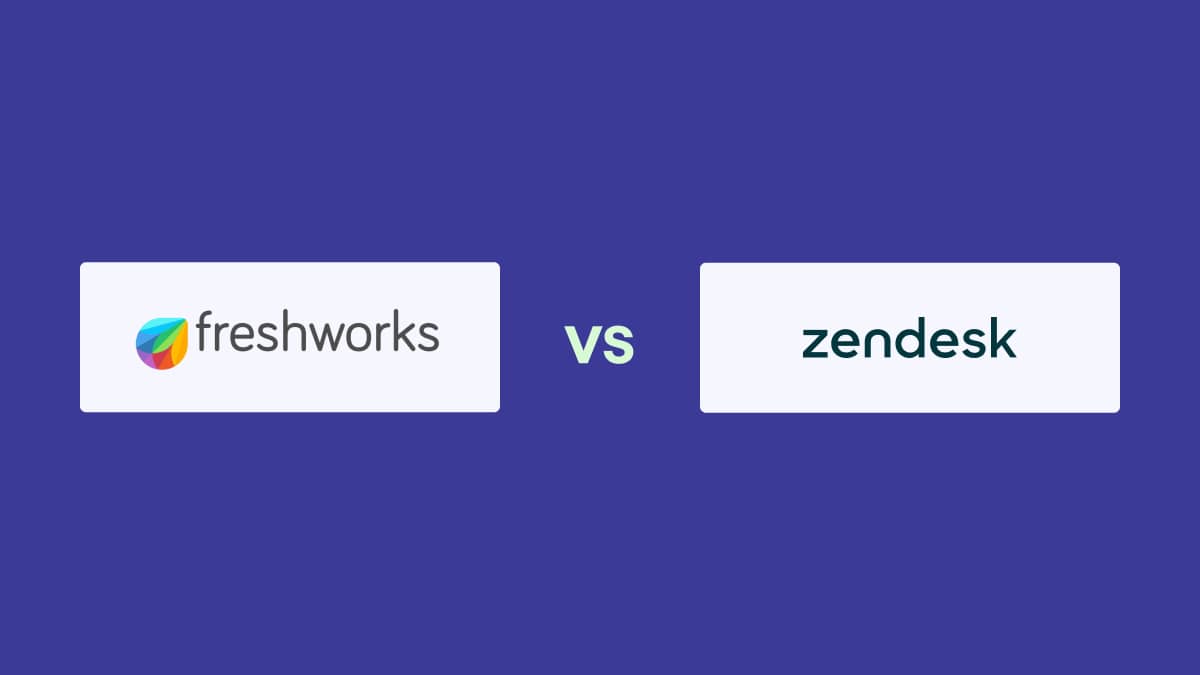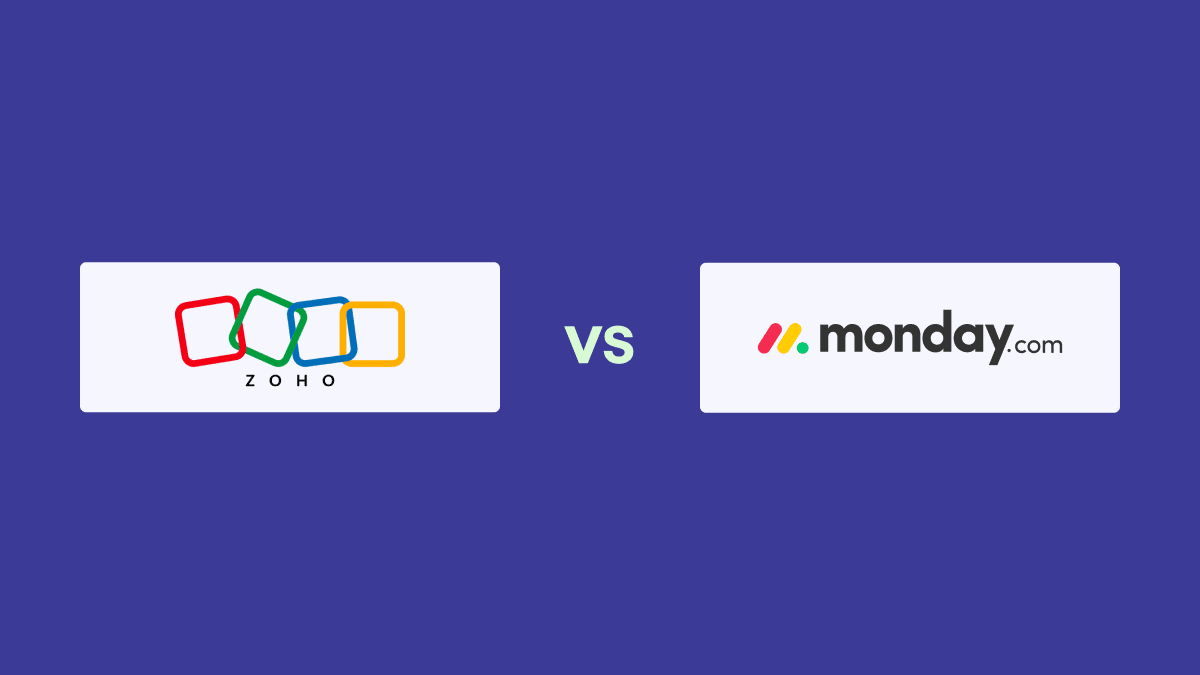Your customer relationship management (CRM) tool is critical to your company’s success. It’s a major investment and, depending on the solution you choose, may require significant time to implement.
That’s why it’s so important to pick the right tool the first time.
In this CRM evaluation guide, you’ll learn what to look for when selecting a CRM system and how to extract the most useful information from vendors.
6 core CRM features your tool must have
CRM systems empower you to manage and nurture relationships with your customers. Every company has unique needs, but here are some key features to look for.
1. Contact management
Your CRM is your single source of truth. It holds the information you need to engage customers, process their sales and provide support. The outcomes are more valuable customer experiences and strong, profitable relationships.
Look for a CRM that provides robust contact management capabilities. Contact management is about more than just keeping contact information up to date. It also involves tracking customer interactions, behaviors and preferences.
2. Lead management
Lead management means capturing, tracking, evaluating and routing potential customers. It allows sales reps to prioritize the leads that have the best chance of converting and ensure none fall through the cracks.
A CRM should give your sales team the ability to follow leads through your sales pipeline and provide the real-time data you need to assess sales performance.
Look for features like lead capture forms, lead scoring and lead assignment. Also, many modern CRMs offer AI chatbots that can quickly generate and qualify leads directly from your website.
3. Sales force automation
Sales force automation (SFA) is the use of technology to streamline sales processes and eliminate repetitive admin work. Automation saves you time and money: when your sales reps are free of repetitive, low-value tasks, they can focus on building customer relationships and closing deals.
Look for personalized email triggers (this is when the system automatically sends tailored emails at specific stages of the customer journey), web forms that automate data entry and chatbots to nurture leads unaided. Some CRM systems also automatically assign lead scores so your teams can prioritize deals.
4. Marketing functionality
CRMs aren’t just for sales, they’re also valuable data sources for marketing teams. Use CRM data to inform personalized marketing messages and distribute them to the right people at the right times. You’ll create a steady stream of leads for your pipeline and strengthen existing customer relationships.
Look for email marketing features, automated lead nurturing workflows, segmentation capabilities and ready-made templates to help you build compelling campaigns quickly.
Marketing automation features can take care of repetitive marketing campaign tasks, personalize communication and deliver targeted messages based on customer preferences.
5. Customer service support
A CRM with the right support features will help you improve customer satisfaction so you can foster loyalty and grow customer retention.
Look for solutions with support capabilities like ticket management and knowledge base integration. These CRM features will help your support team handle customer inquiries efficiently, provide timely responses and identify customers at risk of churning.
6. Reporting and analytics
CRMs are useful for management as they hold the data sales leaders need to understand team performance. That includes strengths and growth opportunities. The better the insights you draw from your CRM data, the better informed your strategic decisions will be.
Look for the ability to generate custom reports, track key sales metrics and visualize data in intuitive sales dashboards.
If you’re trying to build your company’s capacity to make data-informed decisions, you may also want advanced analytics features for sales forecasting, sentiment analysis and product recommendations.
Pipedrive’s reporting features provide high-level visibility into your organization, helping you evaluate your sales team’s performance, fix issues and ultimately boost customer satisfaction.

The software offers advanced revenue forecasts and makes granular reporting accessible to users at all levels.
Your CRM evaluation checklist
Finding the right features for your business is one thing but there are a number of other factors to consider when evaluating CRMs.
Here’s an easy-to-follow CRM evaluation checklist to ensure you cover all bases.
We’ve included all the critical questions to ask yourself when assessing potential CRM vendors and solutions.
Hosting: Do you want on-premises or cloud hosting?
Most modern CRM solutions are cloud-based software platforms offered as subscription services. Cloud-based CRMs are hosted on the vendor’s servers for your team to access through the internet.
They offer many benefits, including:
Ease-of-use. Get started quickly, with no need for installation or new hardware.
Accessibility. Access data from any location through a range of devices to grow productivity on the move – ideal for field sales reps.
Scalability. Choose between pricing tiers and add or remove features in line with your budget and needs.
On the other hand, when you host software on-premises, you have more direct control over system repairs and get to keep your data in-house. On-premises solutions are more extensively customizable, too.
Neither option is objectively better, so think about which makes more sense for your business. For example, if you’re running a large company with strict data protection requirements, you might prefer an on-premises solution to maintain complete ownership of your data. For most companies, though, a more affordable and flexible cloud-based solution fits well.
Ask the vendor: Is this solution cloud-based, on-premises or available in both forms? Ensure the solution can be hosted in a way that suits your cash flow and business processes.
Customization: Can you tailor the CRM to your workflow?
You need your CRM to support your unique sales cycle. Some CRMs can accommodate your needs right out of the box, while others require significant customization. Features you may want to customize include:
Information fields. You may need to add new fields to store the customer information most relevant to your business.
Dashboards. Your key performance indicators (KPIs) may not show as standard. Make sure you can modify reports and dashboards to access the insights you need.
Project views. Ensure you can organize your projects in the most efficient ways for your team. Lists, Kanban boards, calendars and tables are all helpful options.
Customizations like these help your team work efficiently and allow you to refine your process as you grow.
Ask the vendor: Which features can we tailor to our sales process? Make sure you’re able to customize information fields, views and dashboards.
Integrations: Does the CRM connect to your other tools?
Consider how well the CRM integrates with the software you and other teams already use, including email clients, marketing automation platforms, accounting software and customer support systems.
Seamless integration speeds up workflows and ensures your CRM data stays consistent across your entire tech stack.
If integration with a tool you use isn’t available, consider workarounds. For example, you might be able to connect the tools using an automation app like Zapier. You could even have a developer build a connection between tools using your CRM’s API (an application programming interface), which allows the creation of apps that can access a piece of software’s features or data).
Ask the vendor: What integrations does your CRM software currently support? Does it connect with automation apps like Zapier? Is there an API available?
Ensure you can use at least one of those methods to connect your favorite tools to the CRM.
User interface: Is the tool easy to use?
Use demonstration videos and free trial offers to see how intuitive the CRM’s user interface (UI) is. The more user-friendly a CRM is, the more efficient your team members will be when using it.
Look for a UI that’s straightforward and visually appealing. Notice whether the layout and organization of information make sense to you and whether the key features are easily accessible. If your sales reps will use the tool in the field, don’t forget to evaluate the UI on mobile devices like tablets and smartphones.
Also, remember to involve all teams that will use the CRM. Your sales reps should always take potential CRMs for a test drive but don’t forget your marketing, account management, customer success and support teams, too.
Ask the vendor: What support options do you offer? Does support vary between plans? What training resources are available? Does training cost extra to access? Will you help us set the software up? You should feel confident that you can access the support you need to get full value out of your investment.
Scalability: Can the tool accommodate your growth?
If you’re implementing a CRM to make your sales team more effective, you can expect your business to grow. Choose a CRM option that can scale with you.
For example, your marketing, support and sales teams might expand over time. Make sure your tool can accommodate larger teams. If you extend into new markets, the system may need to handle different processes for new regions, countries, languages and currencies.
Ask the vendor: Can your product scale to accommodate growth in my support, success, marketing and sales teams? The answer should make you confident that the tool will meet your needs for the next few years, whether your business expands or contracts.
Security: Is your data safe?
Most CRMs store lots of sensitive customer data. Keeping this data secure is vital for maintaining your customers’ trust and staying compliant with privacy regulations like GDPR.
Security features to look for include two-factor authentication (2FA), data encryption and secure APIs.
Also, make sure you understand and are comfortable with your vendor’s security policies and the liability clauses in your CRM contract. These should explain where and how the provider will store your information.
Ask the vendor: What are your data privacy and security policies? How will you keep my data safe? How often do you conduct security assessments? Make sure the answers align with your own privacy and security policies and that, if anything happens, it’ll be easy to recover the affected customer data.
Implementation: How long will it take to set up?
The sooner you set up your CRM, the sooner it can generate value. Consider the time it will take to:
Customize the system
Import your data
Train your team on new features
Specifically, check whether the vendor provides a clear implementation plan, including data migration, system setup and user training. The provider should be able to give you a rough time estimate.
Ask the vendor: How long does it usually take for a company like mine to implement your software? Will you provide an implementation plan? It should be possible to use the system in minutes or hours rather than days or weeks.
Cost: Does it fit your budget?
Evaluate whether the cost of implementing the CRM fits your budget. Consider not just the upfront price per user but the total cost of ownership.
As part of your calculation, look for hidden costs, such as:
Charges for additional features
Customization fees
Data migration charges
Premium support expenses
For example, you may need additional customizations as your business grows, which could create extra costs. Also, some companies won’t let you easily remove seats from your subscription if you need to scale back.
It may be difficult to gauge hidden costs just from following a demo and reviewing a sales website. Consider checking user reviews and testimonials for cost and value insights from other businesses like yours.
Ask the vendor: What is the total price for my marketing, support and sales team, including installation and setup? Are there any fees to pay that aren’t on your pricing structure page? Is it easy to add additional seats? Can I reduce the number of seats in the future?
Look for complete transparency in these conversations. If a vendor can’t or won’t answer your question directly, they’re likely hiding something.
How to conduct a CRM evaluation
You have your checklist – now it’s time to use it. Follow the step-by-step guide below to conduct a comprehensive CRM evaluation.
Step 1: Identify your business needs
Conduct a needs assessment to determine the most valuable CRM features for your business.
Start by engaging with key stakeholders. Put together a project committee that includes representatives from your sales, marketing, customer success and support teams. Listen to their requirements, pain points and feature ideas for your new CRM.
Sales reps can tell you which lead management features are necessary and which parts of the sales cycle would benefit most from workflow automation
Marketers can identify the information you’ll need to collect to segment your audience and personalize content
Customer success staff can tell you what features will help them identify customers at risk of churning and how to prioritize preventative actions
Customer support agents can tell you what types of customer data and connectivity would make their ticketing system more effective
Use all of this input to create a priority list of CRM features and capabilities.
Step 2: Determine your evaluation criteria
With your business needs in mind, determine the criteria you’ll use to evaluate each option. For example, you might specify:
Comprehensive security and privacy policies
Features that match business processes
Implementation time
Total cost of ownership
User experience
Use your chosen criteria to score each potential new tool. You could give a point to each criterion or allocate more points for your priority features.
Step 3: Build a list of CRM options
Research CRM tools and compile a list of options that meet your business needs. You can get ideas from general web searches (e.g., searching “best CRMs for [X]” on Google), industry reports and peer recommendations.
Once you have a thorough list, narrow it down to a manageable number of options for further evaluation. Use the criteria you developed earlier to help you create a shortlist.
You might also consider vendor reputation, user reviews and the CRM's compatibility with your existing tech stack.
Step 4: Test each CRM
Now it’s time to try your options. Most good CRM vendors, including Pipedrive, offer free trials so you can tour their products first-hand. Some prefer you to sign up for a demo and have a salesperson show you around.
It’s best to get some hands-on experience with any tool you’re considering. Spend long enough to score the tool against the criteria you defined in step two.
This is an ideal time to ask the vendor any questions you have, including the ones listed above. Assess the provider's response if you encounter any issues during a trial. It’s a great sign if they’re willing and quick to help.
Step 5: Score your options
After you test each tool, assign it a score based on how well it meets your criteria.
Create a scoring system, whether a numerical scale or a weighted score, so you can easily compare the CRM apps against each other. Here’s a CRM evaluation template you can use to record your ratings: It’s a good idea to document your evaluation process, criteria and rationale so you can explain your final decision to any other stakeholders.
Step 6: Get feedback and approval
Share your results with the relevant stakeholders and explain how you decided to recommend a particular tool.
Openly discussing the research process and its outcomes will help to keep all involved parties on the same page about how to proceed.
Finally, seek approval for your recommended option and move forward with implementation.
Final thoughts
A CRM platform can be the key to scaling up your sales operations but only if it fits your business well.
A systematic CRM evaluation is the easiest way to find the best CRM for your company’s needs and processes.
It’ll help you avoid picking the wrong tool and undergoing a costly, time-intensive change later.











